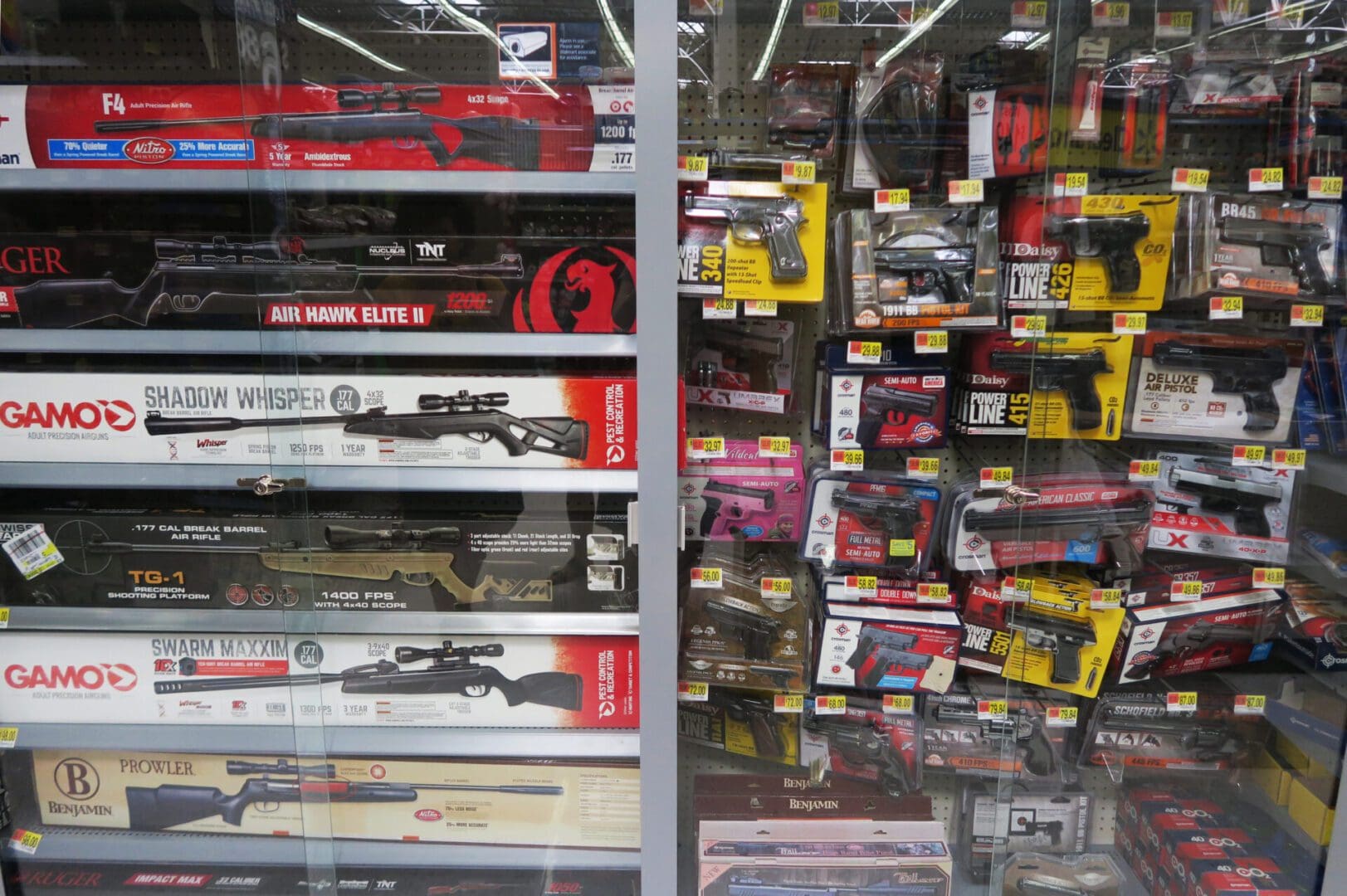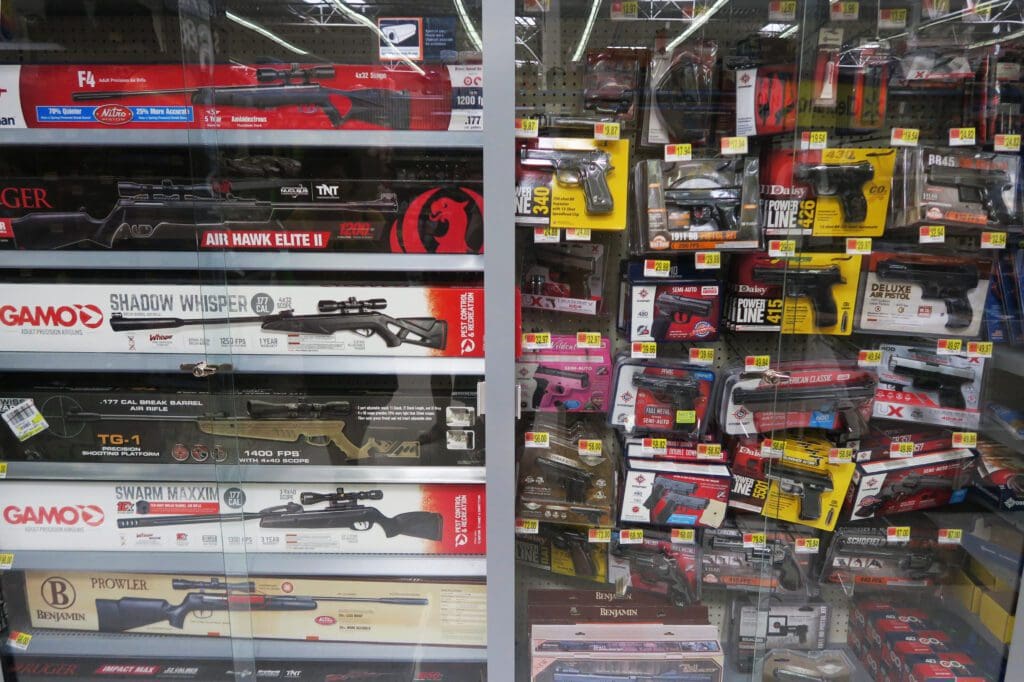

| © Amnesty International |
July 30, 2021
We the undersigned 101 human rights, civil rights, racial justice, religiously affiliated and gun safety organizations write in support of the Break the Cycle of Violence Act (S. 2275/H.R. 4118). We urge you to swiftly pass the Break the Cycle of Violence Act to provide at least $5 billion in federal funding over eight years for community gun violence prevention programs.
Gun violence in the U.S. is a crisis, disproportionately impacting Black and Brown communities nationwide. Gun homicides are the leading cause of death among Black men ages 15–34 and the second-leading cause of death for Latino men and boys of the same age range. Black men are more than ten times as likely to be the victims of gun homicides than white men. In 2019, 14,414 people died from gun homicides in the U.S. Nearly 60 percent—8,607—of gun homicide deaths were Black people. Yet Black people represent just 14.7 percent of the U.S. population.
With a surge in gun sales in the wake of COVID-19, shootings are increasing across the U.S., contributing to the crisis. According to the Centers for Disease Control and Prevention, there were 39,707 deaths in 2019, the most recent year for which government data is available with 14,414 of those being gun homicides. The Gun Violence Archive, a non-profit organization that tracks and documents gun injuries and deaths, published data in May 2021 indicating that the number of deaths in 2020 had risen to a staggering 43,554 with 19,398 of those being gun homicides.
Evidence-based, community violence prevention programs have been proven to reduce gun violence and save lives, while investing resources in impacted communities. There are three well-established models of gun violence prevention programs that have proven successful in reducing violence, some of which are referenced in both President Biden’s executive actions and guidance and in the Break the Cycle of Violence Act. The Group Violence Intervention (“GVI”) strategy, a form of problem-oriented policing (as opposed to traditional “incident-driven” policing), was first used in the enormously successful Operation Ceasefire in Boston in the mid-1990s where it was associated with a 61 percent reduction in youth homicide. The program has now been implemented in a wide variety of cities with consistently impressive results. An analysis of more than 20 GVI programs showed a significant reduction in firearm violence. The most successful of these programs have reduced violent crime in cities by an average of 30 percent and improved relations between law enforcement officers and the neighborhoods they serve. The GVI model has a remarkably strong track record: a documented association with homicide reductions of 30 to 60 percent.
A study of the Cure Violence model, first implemented in Chicago, found that its implementation in several targeted districts in Chicago was associated with a 38 percent greater decrease in homicides and a 15 percent greater decrease in shootings, compared to districts that did not receive the intervention. A 2018 evaluation of Philadelphia’s Cure Violence Program found that shootings decreased significantly, compared to other matched comparison areas.
An example of Hospital Based Violence Intervention, the third model of evidence-based violence prevention programs, is the San Francisco Wraparound Project, first introduced in 2005. In its first six years of operation the Wraparound Project was associated with a fourfold decrease in injury recidivism (re-injury from gun-shot wounds) rates. Moreover, studies have shown that this form of intervention saves hospitals money by preventing future injuries, both for the patient and for anyone the patient may have considered retaliating against.
Investment, training, and support for culturally appropriate violence prevention workers with lived experience in impacted communities has proven successful in cities across the U.S., yet lack of political will has resulted in many advocates and community leaders working with limited or no resources.
For example, Lamar Johnson of B.R.A.V.E. Chicago, said: “Our after-school program is a non-profit- we run it through the church—and the funding comes mostly from private donors. The majority of the city’s budget goes to law enforcement—and that’s not just Chicago, that’s most cities. We’ve met with mayors’ administrations so many times and presented our case, but they don’t give us funding. The whole system is so broken, because the focus is on the criminal justice system. If someone is addicted to drugs, they go to jail before they go to the hospital to get treatment. It’s the mindset.”
Recognizing the effectiveness of these programs and the heroic people like Lamar who lead them, President Biden, on March 31, 2021, announced his intention to include $5 billion for gun violence prevention programs in the American Jobs Plan. This builds on the efforts of Senator Booker and Representative Horsford to pass the Break the Cycle of Violence Act, first introduced in the 116th Congress. If passed, it would provide funding for federal grants to communities that experience 20 or more homicides per year and have a homicide rate at least twice the national average, or communities that demonstrate a unique and compelling need for additional resources to address gun and group-related violence. Each grant awarded would be renewable over five years, and funds would be commensurate with the scope of the proposal and the demonstrated need.
While it is impossible to place a dollar amount on a person’s life or the cost of that loss to their families, communities, and loved ones, the astronomical financial impact of gun violence on U.S. society cannot be overlooked. According to a 2020 study by physicians and researchers, gun violence costs the U.S. healthcare system $170 billion per year. The Health Alliance for Violence Intervention estimates it would cost an estimated $827 million per year, or $5.36 billion over eight years, to fund sustained and adequate violence intervention programs in the 48 U.S. cities with the highest rates of violence—hence the call on Congress to pass at least $5 billion over eight years for community gun violence prevention programs.
With sustained investment into gun violence prevention programs and a national comprehensive strategy aimed at reducing gun violence, particularly in Black and Brown communities, Congress can make inroads to reducing gun violence in all communities and ensure the right of everyone to live free from the threat of gun violence. Congress has an obligation to take action to invest in communities ravaged by gun violence and to make efforts to prevent gun violence and protect the lives and safety of all individuals, particularly in the face of evidence that the 2020 gun-related injury and death tolls in the U.S. have been the highest in decades.
We urge Congress to act urgently to pass the Break the Cycle of Violence Act to ensure at least $5 billion in federal funding over eight years for community gun violence prevention programs that save lives.
Please do not hesitate to contact Ernest Coverson at Amnesty International USA ([email protected]) or Greg Jackson at Community Justice Action Fund ([email protected]) with any questions.
Sincerely,
Amnesty International USA
Community Justice Action Fund
ACLU
African American Ministers in Action
Ban Assault Weapons Now!
Brady
BRAVE Youth Leaders
Ceasefire Oregon
Ceasefire Pennsylvania
Center for American Progress
The Coalition to Stop Gun Violence
CommonSpirit Health
Congregation of Sisters of St. Agnes and the CSA-USA Associate Community
Congregation of the Sisters of St. Joseph of Peace
CT Against Gun Violence
Dominican Sisters of Houston
Dominican Sisters ~ Grand Rapids
Dominican Sisters of Sinsinawa
Everytown for Gun Safety
First Unitarian Universalist Church of Houston
Franciscan Action Network
Franciscan Peace Center
Franciscan Sisters of the Sacred Heart
Generation Progress
Giffords
GPEC-ICHV
Grandmothers Against Gun Violence
Grey Nuns of the Sacred Heart
Gun Violence Prevention PAC Illinois
The Health Alliance for Violence Intervention
Holy Spirit Missionary Sisters, USA-JPIC
Honor with Action Coalition
Houston League of Business & Professional Women
IHM Sisters – Justice, Peace and Sustainability Office
Indivisible Northern Nevada
Institute of the Blessed Virgin Mary
Intercommunity Peace and Justice Center
Iowans for Gun Safety
Jewish Women International
www.Journey4ward.org
Leadership Conference of Women Religious
Leadership Team of the Felician Sisters of North America
March for Our Lives DC
Marylanders to Prevent Gun Violence
Massachusetts Coalition to Prevent Gun Violence
Moms Demand Action
NAACP
National Coalition Against Domestic Violence
Newtown Action Alliance
Newtown Junior Action Alliance
Nonviolence Institute of Rhode Island
North Carolina Council of Churches
North Carolinians Against Gun Violence
Northwest Coalition for Responsible Investment
Not My Generation
Ohio Coalition Against Gun Violence
People for a Safer Society
Presentation Sisters, San Francisco, CA
Reconstructionist Rabbinical Association
Region VI Coalition for Responsible Investment
Religious of the Sacred Heart of Mary, Western American Area
Restorations Ministries, Inc.
Rhode Island Coalition Against Gun Violence
Sacred Ground Ministries
Saint Mark’s Episcopal Capitol Hill DC
San Diegans for Gun Violence Prevention
Sandy Hook Promise
School Sisters of Notre Dame- Atlantic Midwest Office
School Sisters of Notre Dame, Central Pacific Province
Sisters of Bon Secours, USA
Sisters of Charity, BVM
Sisters of Charity Federation
Sisters of Charity of Nazareth Congregational Leadership
Sisters of Charity of Nazareth Western Province Leadership
Sisters of Charity of Saint Augustine
Sisters of Mercy of the Americas Justice Team
Sisters of Notre Dame de Namur USA
Sisters of St. Dominic of Blauvelt, New York
Sisters of St Dominic Racine, WI
Sisters of St Francis of Assisi
Sisters of St. Joseph of Boston
Sisters of Saint Joseph of Chestnut Hill, Philadelphia, PA
Sisters of St. Joseph of Carondelet, LA
Sisters of St. Joseph of NW PA
Sisters of St. Mary of Namur
Sisters of the Holy Cross
Sisters of the Humility of Mary
Squirrel Hill Stands Against Gun Violence
Stop Handgun Violence
Students Demand Action
Survivors Lead
Team Enough
Trinity Health
Union of Sisters of the Presentation of BVM, USA Unit
United Church of Christ, Justice and Local Church Ministries
Ursuline Sisters of Cleveland
Ursuline Sisters of Louisville, KY
Ursuline Sisters of Mount Saint Joseph
Wheaton Franciscans JPIC Office
Youth Advocate Programs, Inc
Youth Over Guns
